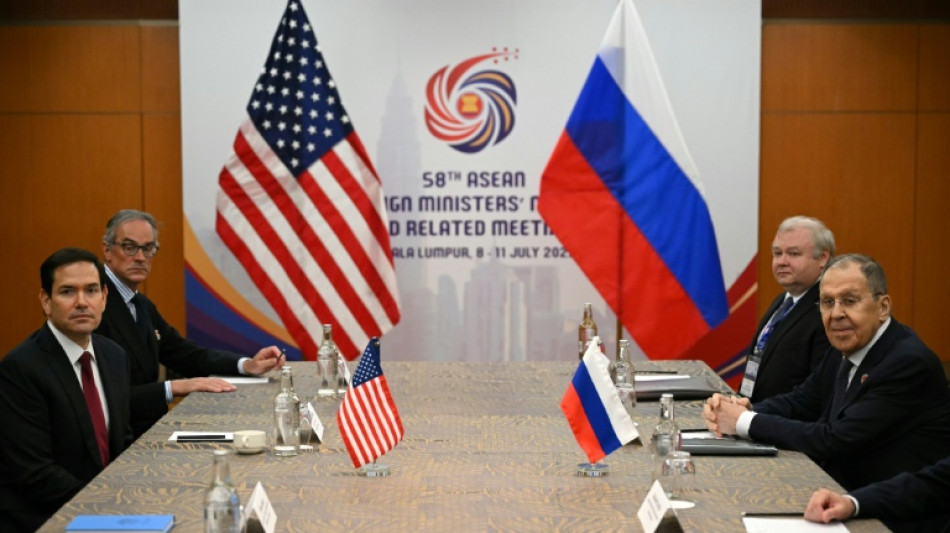
-
 Swiatek surprised by surge to Wimbledon final
Swiatek surprised by surge to Wimbledon final
-
Lyles back, ready to 'run fast', as Tebogo lurks

-
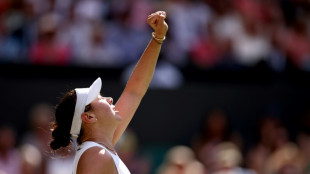 Anisimova proves doubters wrong with run to Wimbledon final
Anisimova proves doubters wrong with run to Wimbledon final
-
Spurs set to sign £60m Gibbs-White - reports

-
 Booker agrees to record $145 mn extension with Suns: reports
Booker agrees to record $145 mn extension with Suns: reports
-
Sabalenka criticises Anisimova behaviour after shock Wimbledon exit

-
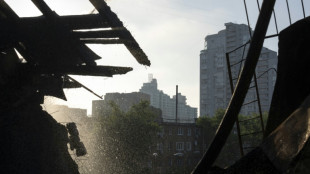 Russia and US hold 'frank' talks on Ukraine war
Russia and US hold 'frank' talks on Ukraine war
-
Swiatek swats Bencic aside to reach Wimbledon final against Anisimova

-
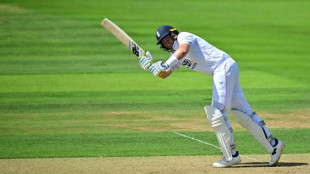 Root's 99 not out keeps India at bay in third Test
Root's 99 not out keeps India at bay in third Test
-
Delta offers upbeat outlook on travel demand, lifting shares
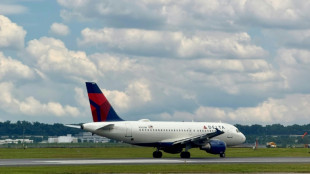
-
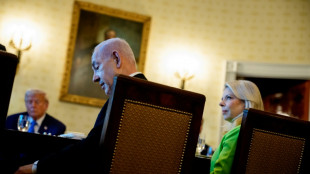 Sara Netanyahu: the ever-present wife of Israel's prime minister
Sara Netanyahu: the ever-present wife of Israel's prime minister
-
Italy can hurt rampant Spain, says coach Soncin
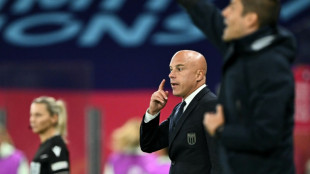
-
 Djokovic faces Sinner in Wimbledon blockbuster as Alcaraz meets Fritz
Djokovic faces Sinner in Wimbledon blockbuster as Alcaraz meets Fritz
-
Rebooted and 'vulnerable': Superman is back on screens

-
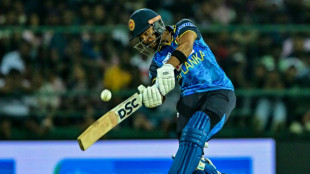 Sri Lanka steamroll Bangladesh to win first T20
Sri Lanka steamroll Bangladesh to win first T20
-
Swiatek routs Bencic to reach first Wimbledon final

-
 Anisimova shocks Sabalenka to reach Wimbledon final, Swiatek in action
Anisimova shocks Sabalenka to reach Wimbledon final, Swiatek in action
-
Europe court says S.African Semenya's gender eligibility trial wasn't fair
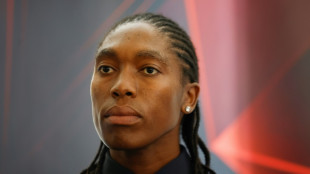
-
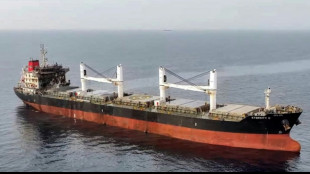 Ten rescued after deadly Huthi ship sinking off Yemen
Ten rescued after deadly Huthi ship sinking off Yemen
-
Scrutiny over Texas flood response mounts as death toll hits 120

-
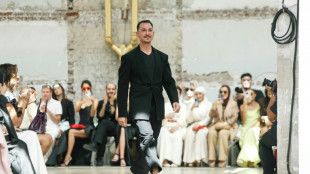 Rami Al Ali becomes first Syrian in Paris fashion programme
Rami Al Ali becomes first Syrian in Paris fashion programme
-
London stocks hit record high on tariff optimism
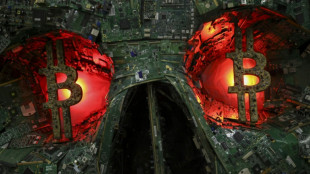
-
 Ireland's Healy pulls off solo win at Tour de France
Ireland's Healy pulls off solo win at Tour de France
-
French appeals court clears two over first lady gender rumours

-
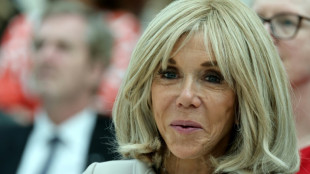 French appeals court court clears two over first lady gender rumours
French appeals court court clears two over first lady gender rumours
-
Barry Callebaut cuts outlook as chocolate sales volumes melt away

-
 The $10 mn bag: Original Birkin smashes records at Paris auction
The $10 mn bag: Original Birkin smashes records at Paris auction
-
Anisimova stuns Sabalenka to reach Wimbledon final

-
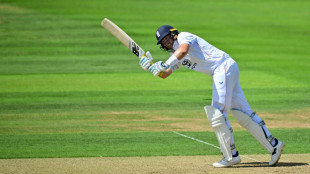 Root leads England revival after Reddy's double strike for India
Root leads England revival after Reddy's double strike for India
-
Snap, crackle and pay: Ferrero to buy WK Kellogg for $3.1 bn

-
 Shein faces 150-mn-euro fine in France
Shein faces 150-mn-euro fine in France
-
Rubio says Asia might get 'better' tariffs than others
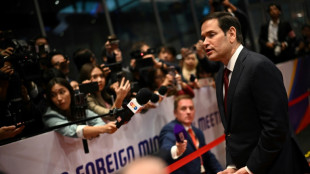
-
 India wicketkeeper Pant leaves field injured in third Test
India wicketkeeper Pant leaves field injured in third Test
-
Russia says holds 'frank exchange' with US on Ukraine war
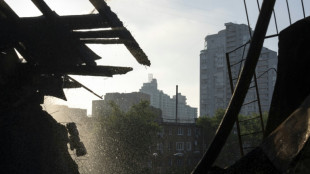
-
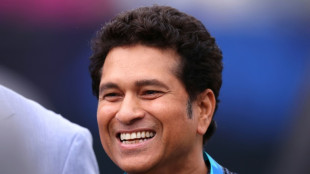 Tendulkar says 'life has come full circle' with Lord's portrait
Tendulkar says 'life has come full circle' with Lord's portrait
-
Wall Street stocks stall, London hits record high
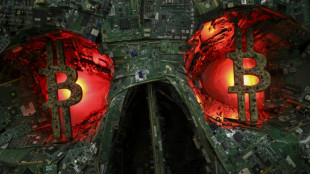
-
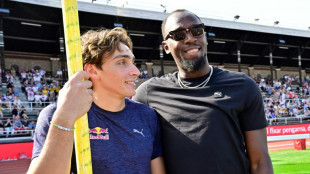 Duplantis unfazed by late world champs in Tokyo
Duplantis unfazed by late world champs in Tokyo
-
Europe court says S.African athlete's gender eligibility trial wasn't fair
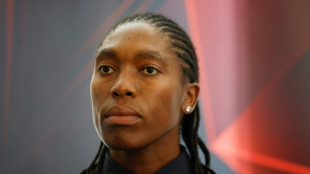
-
 Dzeko, 39, returns to Serie A with Fiorentina
Dzeko, 39, returns to Serie A with Fiorentina
-
Scrutiny over Texas flood response mounts as death toll tops 120
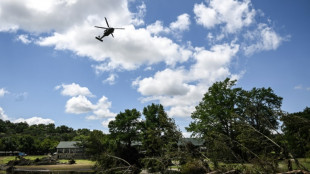
-
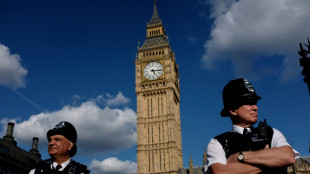 Iran threats in UK 'significantly increased': Intel watchdog
Iran threats in UK 'significantly increased': Intel watchdog
-
Volkswagen halts electric minivan exports to the United States

-
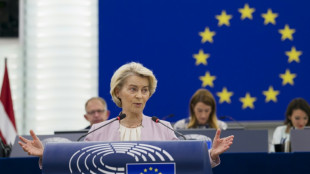 EU chief von der Leyen comfortably survives confidence vote
EU chief von der Leyen comfortably survives confidence vote
-
India's Reddy strikes twice to rock England
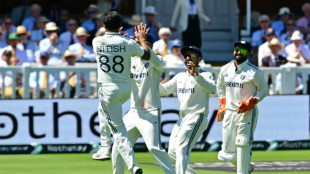
-
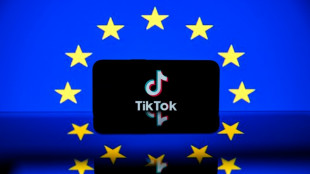 EU opens new probe into TikTok data transfer to China
EU opens new probe into TikTok data transfer to China
-
Italy probes UK online bank Revolut for 'misleading' clients

-
 Arsenal sign midfielder Norgaard from Brentford
Arsenal sign midfielder Norgaard from Brentford
-
Explosions, fires rock Kyiv in deadly Russian barrage
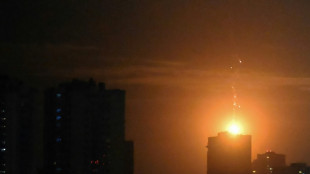
-
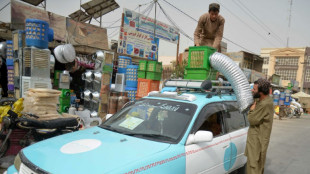 Fatigued Afghan taxi drivers take novel approach to AC
Fatigued Afghan taxi drivers take novel approach to AC
-
Rubio meets Russia's Lavrov at ASEAN talks
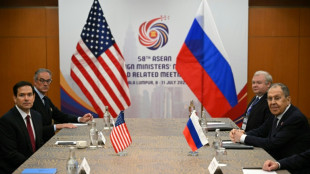

Rubio meets Russia's Lavrov at ASEAN talks
US Secretary of State Marco Rubio met with his Russian counterpart in Malaysia on Thursday, bringing the war in Ukraine to the sidelines of ASEAN talks focused on Washington's tariff drive.
Rubio's first visit to Asia as secretary of state also comes as US President Donald Trump ramps up his trade war, threatening more than 20 countries with punitive tariffs.
The top US diplomat met Sergei Lavrov on the sidelines of a gathering of foreign ministers from the Association of Southeast Asian Nations (ASEAN) in Kuala Lumpur.
Their meeting got underway hours after Russia hammered Ukraine's capital Kyiv early Thursday with its second large-scale drone and missile barrage in as many nights, killing at least two people, authorities said.
It follows Donald Trump's recent expletive-filled comments about Vladimir Putin -- reflecting the US president's growing frustration with the Russian leader over the grinding war.
Trump accused Putin of talking "bullshit" about Ukraine, saying that the United States would send Kyiv more weapons to defend itself.
Rubio and Lavrov last met in February in Saudi Arabia, following a rapprochement between Trump and Putin. The two diplomats have also spoken multiple times by phone.
After Malaysia, Lavrov will visit North Korea this weekend, the latest in a series of high-profile visits by top Moscow officials as the two countries deepen military ties.
Pyongyang has emerged as one of the Kremlin's main allies during its Ukraine invasion, sending thousands of troops to Russia's Kursk region to oust Kyiv's forces and providing the Russian army with artillery shells and missiles.
- 'Sharpened instruments' -
US officials said ahead of Rubio's trip that Washington was "prioritising" its commitment to East Asia and Southeast Asia.
Speaking in Malaysia, Rubio said the United States has "no intention of abandoning" the region.
But his visit comes after Trump threatened more than 20 countries, many in Asia, with tariffs ranging from 20 to 50 percent, and announced a 50 percent toll on copper imports and a possible 200 percent duty on pharmaceuticals.
Malaysian Prime Minister Anwar Ibrahim warned Asia's top diplomats on Wednesday of a new era when tariffs are among the "sharpened instruments of geopolitical rivalry".
Trump said Monday that duties he had suspended in April would snap back -- even more steeply -- on August 1.
Among those targeted were top trade partners Japan and South Korea, which each face 25 percent tariffs.
Indonesia, Laos, Thailand, Malaysia, the Philippines, Brunei and Myanmar -- all members of ASEAN -- face duties ranging from 20 percent to 40 percent if they do not strike deals with Washington by Trump's new deadline.
The levels were not too far from those originally threatened in April, although some rates were notably lower this time.
Vietnam, which is also an ASEAN member, is one of only two countries -- Britain being the other -- to have reached a tentative agreement with Trump.
In Malaysia, Rubio will attend a post-ministerial conference and a meeting by East Asian foreign ministers -- which will also see Japan, South Korea and China participating.
He will also meet with Anwar and hold trilateral talks with the Philippines and Japan.
Rubio's Chinese counterpart Wang Yi is also at ASEAN, but details of any meeting between the pair have not been announced.
The superpowers remain locked in a range of disputes on issues from trade and fentanyl, to Taiwan and cutting-edge technology.
Without mentioning the United States, Wang on Thursday called for a "fairer and more reasonable" international order.
Y.Zaher--SF-PST
